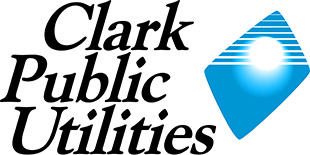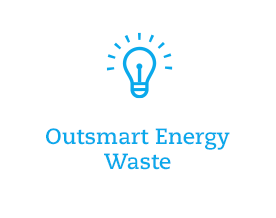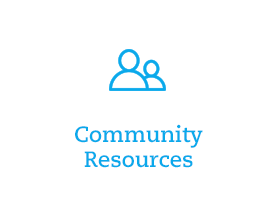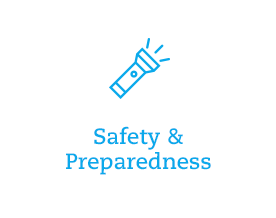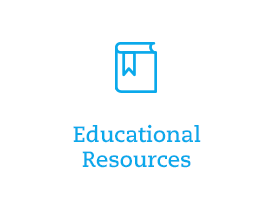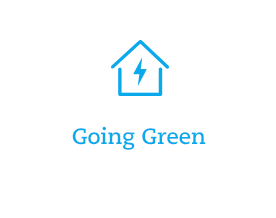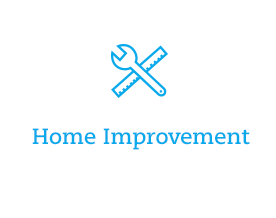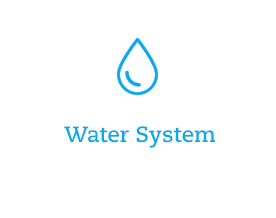Reduce Energy Waste at Home
Whether you rent or own your home, making it more energy efficient is always a smart move. Improving energy efficiency can make your home feel more comfortable, and even help lower your utility bills. Best of all—you don’t have to invest a lot to do it.
Here are 5 simple yet effective ways to improve your home’s energy efficiency.
1. Watch The Thermostat
You can easily save energy by setting your thermostat back while you’re asleep or away from home. In fact, you can save up to 1% on your heating bill for every degree you lower your thermostat for eight hours—if you set it back 5 degrees every time you go to bed and leave for work, that could add up to a 10% savings! Although if your primary heating system is a heat pump, consider a more modest thermostat setback of no more than 3 degrees since heat pumps are most efficient when maintaining a consistent temperature as opposed to recovering from a large setback. Programmable thermostats can do this for you automatically, and they’re relatively inexpensive and easy to install. And smart thermostats go one step further, actually learning your setting and activity patterns over time. Whatever your approach, the thermostat is a very easy place to improve your energy efficiency.
2. Avoid Air Leaks
If you added up all the leaks, holes and gaps in a typical home, it would amount to a surprising quantity of heat loss! Sealing off potential leaks in your exterior walls prevents unwanted outside air from getting in, and keeps temperature-controlled air from getting out. Remove baseboards and fill gaps with nonexpanding foam. Add insulating pads beneath faceplates on outlets and switches, or seal the edges of the plates with winterizing tape. Seal wall penetrations routed to the outside—pipes, dryer vent ducts, cable and phone lines—with caulk or spray foam both inside and out.
3. Check Your Ductwork
Heating and cooling ducts are often big energy wasters. Sealing and insulating them can improve the efficiency of your heating and cooling system by up to 20 percent or more. Cover seams and connections of any ductwork you can access in your basement, attic, or anywhere else in your home with sealant and insulation. This will keep them from getting hot in the summer or cold in the winter, and keep your temperature-controlled air under control.
4. Give Your Home a Tune-Up
Homes are sort of like cars—you get regular maintenance on your engine, right? Well, some regular maintenance for your home can be an inexpensive way to keep it running in tip-top shape too. An annual tune-up of your heating and cooling system can increase its efficiency by up to 30 percent, and changing your air filter regularly can improve efficiency by up to 15 percent! Check your filter every month, especially during peak months (winter and summer). If the filter looks dirty after a month, change it—at a minimum change it every 3 months. Dirty filters slow down airflow and make your system work harder. A clean filter will also keep dust and dirt from building up in the system, cutting down on maintenance and repair costs.
5. Know Your Usage
Energy management tools like mobile apps, online calculators, and even plain old pencil-and-paper, help you track energy usage, so you can better understand—and even cut back—energy consumption in your home. Tracking your energy usage is free, and relatively easy. Start by making sure you know how to read and understand your energy and water meters, with our quick tutorials.
6. Outfit Your House with Energy Efficient Lighting
Clark Public Utilities has long provided free recycling of burned out compact fluorescent (CFL) bulbs. Customers can bring in burned out CFLs or CFLs that have been replaced with LED bulbs to any utility location for recycling. CFLs contain small amounts of mercury so recycling them properly is important for safety!
While Clark Public Utilities does not accept fluorescent tubes for recycling, many local collection sites exist where they can be recycled at no cost. To find the nearest fluorescent tube collection site visit the LightRecycle Washington website. **Please note that as of 1/1/26, the LightRecycle Washington recycling program has been temporarily paused while the WA State Department of Ecology hires a new program administrator. Due to this, Clark Public Utilities is unable to provide recycling services as this time. We apologize for the inconvenience and please check back later.
For more tips, tools, and resources like these, visit the Energy Star website.
